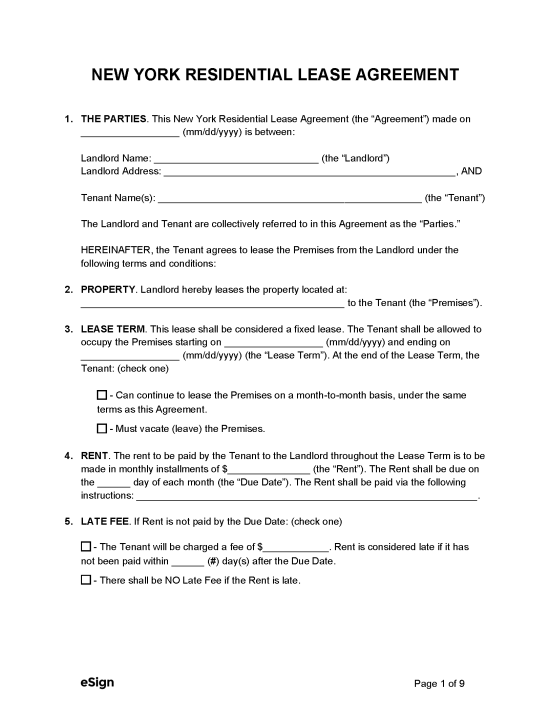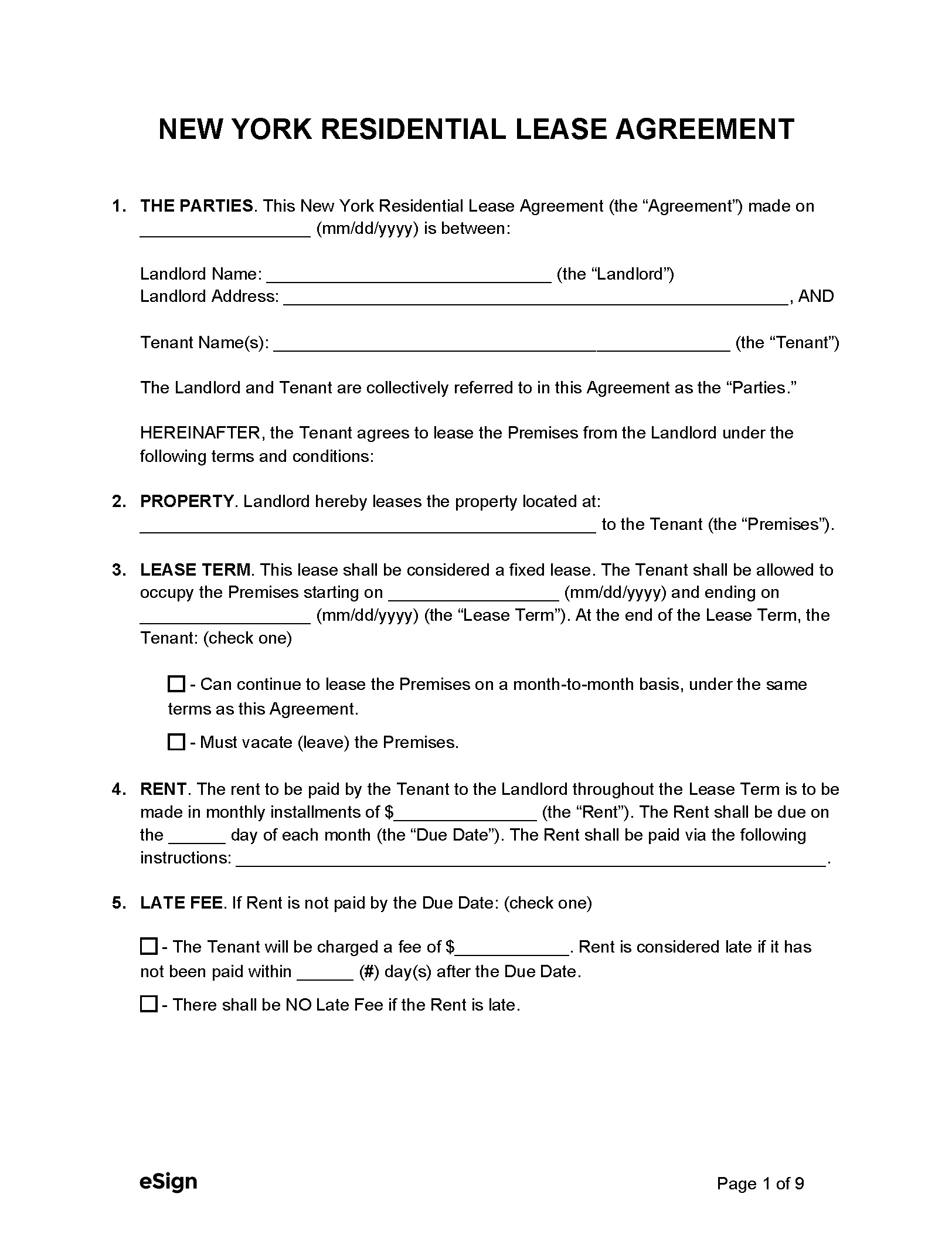
A New York lease agreement is used to formalize the rental arrangement between tenant and landlord. The contract provisions will vary depending on whether it is for residential or commercial purposes. In all cases, the landlord should include their rental conditions (special fees, pet policies, prohibited activities) as well as each state-mandated disclosure.
A New York lease agreement is used to formalize the rental arrangement between tenant and landlord. The contract provisions will vary depending on whether it is for residential or commercial purposes. In all cases, the landlord should include their rental conditions (special fees, pet policies, prohibited activities) as well as each state-mandated disclosure.
PDF Download
A New York lease agreement is used to formalize the rental arrangement between tenant and landlord. The contract provisions will vary depending on whether it is for residential or commercial purposes. In all cases, the landlord should include their rental conditions (special fees, pet policies, prohibited activities) as well as each state-mandated disclosure.
4.8 | 22 Ratings Downloads: 9,578
Rental Application – Landlords can have tenancy applicants fill out this form as a means of obtaining their rental, work, and credit history.
Maximum Amount ($) – The maximum amount that a landlord may demand for a security deposit is one month’s rent. [11]
Collecting Interest – If the rental property has at least six residential units, security deposits must be placed in an interest-bearing account. Landlords are entitled to keep 1% of the interest earned; the tenant is entitled to the remainder. [12]
Returning to Tenant – Deposits must be returned to tenants within 14 days of the tenant’s vacancy. [13]
Itemized List Required? – Yes, the tenant must be given a statement indicating any deductions from the security deposit within 14 days of the termination of the lease. [14 ]
Separate Bank Account? – Yes, landlords must keep deposits separate from their personal bank accounts. [15]
General Access – No state law specifies how much warning a landlord must provide before accessing the rented property, but a notice to enter may be used as a courtesy to tenants.
Immediate Access – No state law addresses emergency entry into a rental unit.
Grace Period – Tenants have five days (including the initial due date) to pay rent before the landlord can charge late fees. [19]
Maximum Late Fee ($) – The most that may be charged for late rent is $50 or 5% of the monthly rent, whichever is less. [20]
Bad Check (NSF) Fee – The fee for a bounced check may not exceed $20. [21]
Withholding Rent – Tenants can pay the utility provider and subtract the amount spent from future rent payments if a landlord refuses or does not provide a utility or other maintenance service for which they are responsible. [22]
Non-Payment of Rent – A 14-day notice to quit may be sent if a tenant is behind on rent . [23]
Non-Compliance – If a tenant violates the conditions of their lease, the landlord may send them a 30-day notice to quit. [24]
Lockouts – It is illegal for a landlord to change the locks in an attempt to evict a tenant without a court order. [25]
Leaving Before the End Date – If the tenant leaves before the lease expires, they must pay rent until the agreement expires or the landlord finds a new tenant. Landlords must make a reasonable effort to rent the property at market value to a new tenant. [26]
Month-to-Month Tenancy – Landlords may use a 1-month notice to quit to inform tenants they have one month to move out. [27 ]
Unclaimed Property – No state law governs how a landlord must deal with a tenant’s abandoned personal property.